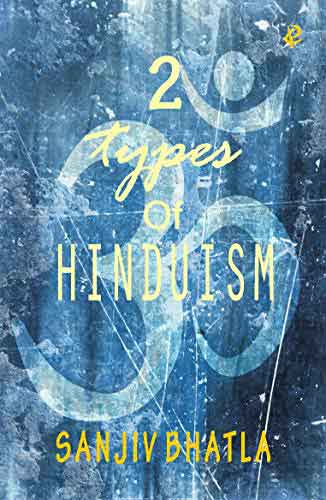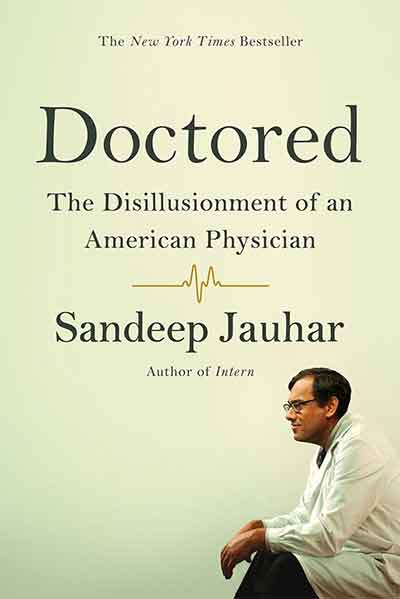
Political religion has become a dominant feature of our democracy particularly in the last few years. Different proponents of Hindutva groups freely distort religion to further political ideologies. They disregard some of the fundamental teachings of Hinduism to achieve their objective of gaining political power by winning elections. They generate hate and demonization of other faiths. They routinely invent history and manufacture “facts” to support narratives of hindu victimhood. Self-styled champions affiliated with Hindutva thinking spread false stories about cow killing and love jihad to demonize the muslims and drive division in society. They zealously invoke religion to generate polarization and invoke fear in the minds of ordinary people. But Hindutva is not Hinduism. Hindutva is a political ideology and must not be confused with Hinduism.
We are a deeply polarized nation today owing to this deadly mix of religion and politics. It has mobilized several persons from hindu background to speak out and reclaim hindusim from the clutches of divisive political groups. 2 Types of Hinduism, an extensively researched book by Sanjiv Bhatla is a sincere and painstaking effort to enlighten readers about the evolution of Hinduism and the dangers posed by its inauthentic arbitrary versions in currency today.
The book brings out the essence of Hinduism as found in Puranas and Epics; Vedas and Upanishads, Mahabharata and Bhagwad Gita based on various reputed sources including works of Swami Vivekananda. It is scathing in its dissection of Manusmriti and Hindutva theories of V D Savarkar. The “Aryan” roots of the Indus Valley Civilization are thoroughly dissected with the lense of scientific inquiry apart from references from scholarly sources. In the chapter Hinduism Today, the author is critical of the way original principles of the Vedas and the Gita have been forgotten by many. He worries about the perception of hindusim getting marred thanks to the poster boy brahmins as signified in the RSS version of Hinduism. This narrative of hegemony and dominance draws from the “Freudian Text called the Manusmriti” and brings bad name to Hinduism. The author debunks the myth about the greatness of the Aryans of the Indus Valley Civilization created by the Brahmins of the RSS with scientific evidence about migration in those times and antecedents of Indus valley inhabitants.
The elaborate chapter on Lord Krishna takes the reader through the narratives of Mahabharata and links it up with the teachings of the Bhagwad Gita on humanity, good deeds, welfare of all and importance of individual conscience. A true hindu is conscientious and Lord Krishna is ever present in the heart. The author loves Lord Krishna for his sweetness and gentleness. In contrast is the one who wants to be Vishva Guru with his false sense of superiority emanating from the Manusmriti !
The author is forthright and unsparing in his interrogation of the wisdom of Manusmriti. Several examples are cited to show how it is deliberately defiant of Bhagwad Gita. This has led to the two conflicting mindsets of hindus – the pristine versus the petty. Gita calls for renunciation of worldly possessions to attain moksha whereas Manusmriti stresses on acquisitions and power. “ I envy no one, nor am I partial to anyone. I am equal to all,” Krishna says in Gita whereas Manusmriti is consistently hateful of Shudras. It is squarely the source of caste and gender discrimination that has come to possess the minds of many hindus.
Human discrimination based on birth as proposed by Manusmriti is not supported by other scriptures like Bhagwad Gita and Vedas. Thinking based on Manusmriti became a source of embarrassment for many hindus as they got introduced to the major religions of the world. Progressive movements like Brahmo Samaj and Arya Samaj were the outcome of the wish to reform society and address the injustice in the form of caste. Dowry, sati, polygamy amongst kulins, rituals, hegemony of the priests were some of the ills that got addressed by these movements.
The author is not judgmental about faith per se; he is critical about the supremacist tendencies having crept into the minds of some hindus despite it being antithetical to the Hinduism of Lord Krishna. Ideally, religion must be a private matter. But we are not living in ideal times. We are a nation deeply divided by religious polarization and hate. This book adds a voice to the struggle towards a peaceful and tolerant society. It elaborately distinguishes between religion and its political use cautioning the reader to understand the crucial difference.
Zakiya Soman is the founder member of the Bharatiya Muslim Mahila Andolan, an organisation of Muslim women in India
SIGN UP FOR COUNTERCURRENTS DAILY NEWSLETTER

















































